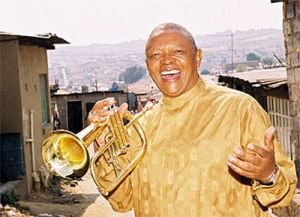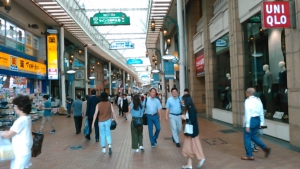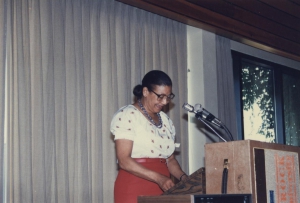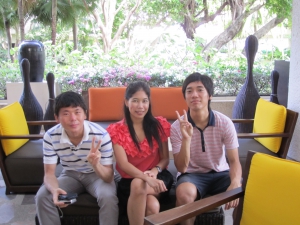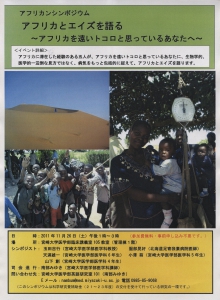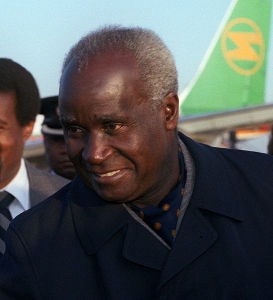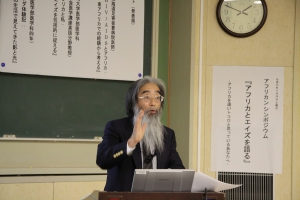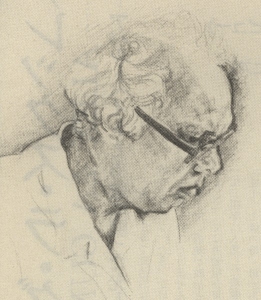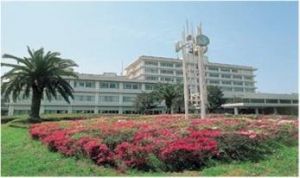7回目の授業でした。またコメントも聞けなかったし、トーイックの過去問も出来なかったね。
このページもやっと前日に書き込みです。
先週の授業が終わったあと2時過ぎの便で吉祥寺に。金曜日まで。今回は結構疲れました。帰りの飛行機、一時間以上も遅れて雨雲の中で相当揺れた上、帰りのタクシーが煙草臭くて気分が最悪、帰って何も食べずにそのまま寝てしましました。土曜日もぼーっとしたまま、日曜日になって印刷の原稿を持って医学科の部屋に。どうしてこれほど疲れたんやろな。辛うじて今日は地域の一年と二年の授業は終わったものの、このページを書くのもアップアップ。あしたの授業では普段通りにやれるとええけどね。
先週は何かあったのかだいぶ来てない人もいたし。今日は地域の人たちは普段通りに戻ってはいたけど、工学部の人は戻るかな。再履修の人で来なくなってる人が増えてるみたいやし。
<今回>は
小川くんのTHE 1948 APARTHEID REGIME 1948の日本語訳の続きだけで時間切れでした。その分と、THE POLICIES OF APARTHEIDとREFERENCE 3の日本語訳を貼っておきます。自分でやったのと比べて下さい。
<次回>は
Mass MOBILIZATION AND OPPRESSIONとTHE ARMED STRUGGLE(阿久根さん)、歌と映像を少しでも紹介できるとええけどね。トーイックも少しはやりたいね。阿久根さん、のびのびになってごめんなさい。小川くんがいっしょうけんめいやってくれてたから、時間をかけました。
また、あした。
*******
THE 1948 APARTHEID REGIME 1948年のアパルトヘイト政権(続き)
They had learnt to put their trust in the Afrikaner nationalists, because they had given them job security and privileges when they started a state-controlled industrialization process before the War, with state-owned steel production, among other things. Within the state sector the white employees, unlike the African workers, were guaranteed security and benefits by clauses on positions reserved for whites. For those Afrikaners who had become impoverished when mining capital expanded and bought land, racial discrimination became their only barrier against falling to the very bottom of society.
白人労働者は民族主義的なアフリカーナーを信用していました。というのも、第二次大戦前に国が主導して産業化の政策を進めたとき、中でも特に国有の製鉄の政策を始めたとき、自分たちに仕事を保証し、特権を与えてくれていたからです。国有部門で白人の雇用者は、アフリカ人労働者と違って、白人専用に確保された法律上の身分条項によって、安全と利益が保証されていました。貧しくなっていたそういったアフリカーナーにとって、鉱山資本が手を広げて土地を購入したとき、人種差別が社会の最底辺に落ちないための唯一の防壁となりました。
THE POLICIES OF APARTHEID アパルトヘイト政策
The Afrikaans word apartheid means separation in English. It was the slogan in the National Party campaign. They saw a future where whites and Africans would live completely separate, and 'develop their distinct character.’ But in reality no real separation would or could be sought, because African labour power was needed as the basis for the prosperity of the whites. (See Appendix South Africa 2)
アフリカーンス語のアパルトヘイトは、英語では隔離を意味します。アパルトヘイトは国民党の選挙活動のスローガンでした。国民党は白人とアフリカ人が完全に別々に暮らし、「それぞれの特性をのばす」という将来を夢見ていました。しかし、現実には、アフリカ人の労働力が白人が繁栄するための基礎として必要でしたから、本当の意味での隔離は考えられませんし、実際には不可能です。
More than three million African workers and 2.5 million African domestic servants live in the 'white’ areas. Three-quarters of the wage employees in South Africa are Africans. The National Party soon admitted that the separation was to be separate sets of political and civil rights for blacks and whites. Every African had citizen rights only in the bantustan area of his own 'tribe’ whether or not he had set foot there. The nine African reserves or bantustans in reality consisted of a large number of scattered land areas, mostly barren areas suffering from land erosion and poverty. These bantustans functioned as large labour reserves for the 'white’ areas.
「白人」地域には300万人以上のアフリカ人労働者と250万人のアフリカ人のボーイやメイドが暮らしています。南アフリカの賃金雇用者の4分の3がアフリカ人です。国民党はすぐに、隔離は黒人と白人それぞれ別々の政治的な権利や市民権であるということを認めました。今まで足を踏み入れたことがあってもなくても、すべてのアフリカ人は、自分たち自身の「部族」のバンツースタン地域でのみ、市民権がありました。現に、9つのアフリカ保留地、すなわちバンツースタンは多くの飛び地から成り、そのほとんどが土地が浸食されたり、貧困に喘ぐ不毛の土地です。それらのバンツースタンは「白人」地域のために無尽蔵の労働力を確保する土地として機能しています。
The bantustan policy meant that Africans were to be prevented from living permanently in the white areas. Ruthless, forced evictions took place to force 'surplus labour’ to move from the towns to the bantustans. Crossroads outside Cape Town is only one example of this policy.
バンツースタン政策は、アフリカ人を白人地区で永住させないという意味のものでした。冷酷で、強制的な立ち退きが、「余剰労働力」を町からバンツースタンに強制的に移動させるために強行されました。ケープタウン郊外のクロスローヅはこの政策の一例です。
REFERENCE 3 参照3
We can hear the news of Radio South Africa about the 1978 Crossroads eviction in the following scene of Cry Freedom.
Newscaster: “This is the English language service of Radio South Africa. Here is the news read by Magness Rendle. Police raided Crossroads, an illegal township near Cape Town early this morning after warning this quarter to evacuate this area in the interests of public health. A number of people were found without work permits and many are being sent back to their respective homelands. There was no resistance to the raid and many of the illegals voluntarily presented themselves to the police. The Springbok ended . . ."
米国映画「遠い夜明け」の以下の場面で、1978年のクロスローヅの立ち退きについての南アフリカのラジオニュースが出てきます。
ニュースキャスター:「こちらは南アフリカラジオの英語放送です。
マグネス・レンドルがニュースをお伝えします。公衆衛生の見地から、その地域を空け渡すように勧告を出したあと、今朝早く警察は、ケープタウン郊外の不法居住地区クロスローヅの手入れを敢行しました。多くの人が労働許可証を持たず、それぞれのリザーブに送り返されています。手入れに対して全く抵抗の気配もなく、不法滞在者は自発的に警察署に出頭していました。放送を終わります・・・。」
The hated section 10 in the Native Laws Amendment Act from 1952 rule that no African could visit a place outside his reserve for more than 72 hours, unless he could prove that he had lived there since birth, or had worked in the same area for the same employer for at least ten years, or had legally resided in the same area for 15 years, or was the wife or child under 16 of a person with these qualifications. Residence permits could also be given by labour bureaus. But even those who fulfilled these requirements could be deported at any time as 'superfluous.’
1952年に制定された一般法修正令の忌まわしい第10(節)条には、生まれてからずっとそこに住んでいたか、あるいは、少なくとも10年間同じ雇用者の同じ場所で働いていたか、あるいは、合法的に15年間同じ土地に住んでいたか、あるいは、それらの資格がある人の妻か16歳以下の子供であるかが証明出来ない限り、アフリカ人は72時間以上は自分のリザーブ外の土地を訪れることができないと規定されています。労働局が居住許可証を発行出来ました。しかし、それらの資格を満たしている者でも、いつでも「余剰者」として追放されました。
